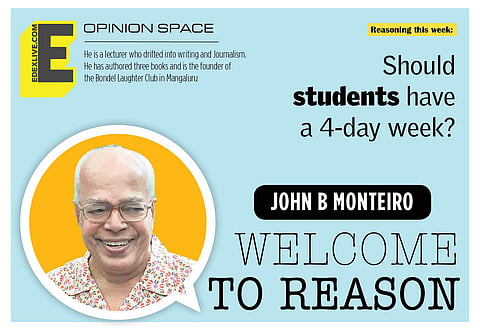

Opportunity is missed by most people because it is dressed in overalls and looks like work.
- Thomas Alva Edison (1847-1931) an American inventor and businessman who has been considered as
America’s greatest inventor. (Not related to Tulunadu’s Alvas!)
The Old Testament of the Bible says Genesis 31:9 – “By the sweat of your brow, you will eat your food.” It is in the context of Adam’s punishment for eating the forbidden fruit in the Garden of Eden.
When you work very diligently at something physical, you will usually feel sweat start to drip down from your forehead (brow). Therefore, if something comes about by the sweat of your brow, it has occurred because of your hard work. By the sweat of one’s brow does not just refer to gains from physical work. It can also be a figurative statement describing the effort put into a mental task. This can be work in an air-conditioned environment as is the case with the IT industry. It can also apply to students and their studies.
At this stage, I present to the readers a recent media report (10/2/21) titled: Centre plans four days work per week. Senior IAS officer and secretary in the ministry of labour and employment, Apurva Chandra said that the government is considering the objections raised by trade unions to set up 12-hour daily work shifts. “There will be a maximum of 48 hours of work in a week. If someone works for 8 hours a day, then there will be 6 working days per week. If a company opts for 12 hours of work per day for its employees, it means four days of working and three holidays,” Chandra said.
“If daily working hours are increased, you will have to give the workers similar holidays also. There will be 5 or 4 working days if duty hours are increased. It will now be mutually agreed to by the employees and employers as to what is appropriate for them,” he further said.
Now, let us suppose that a similar scenario is adopted in the educational sector. Students may actually find it a bit of a drag after the long year of layoff that they have had owing to the COVID pandemic, but in the larger scheme of things, it does make for very little class time. Many universities abroad often have considerably lesser in-class lecture hours and this has been the norm for decades, as opposed to the Indian education system. Will the COVID break shake them up and allow a four-day week to actually make sense?
The other question that arises is: How will it affect the edu-triangle comprising of management, teachers and students both in the public and private sectors and how will they react and cope with it?
